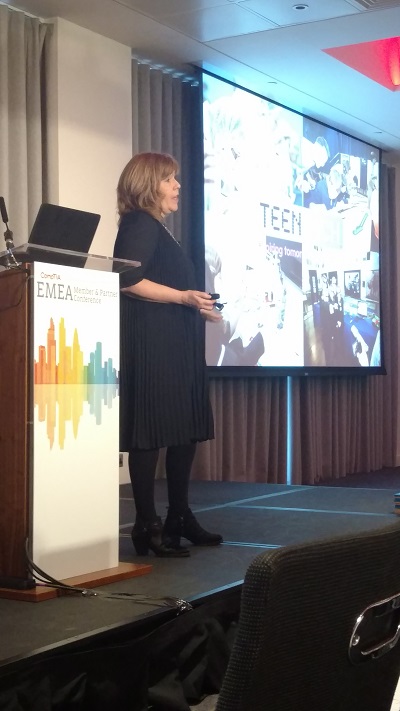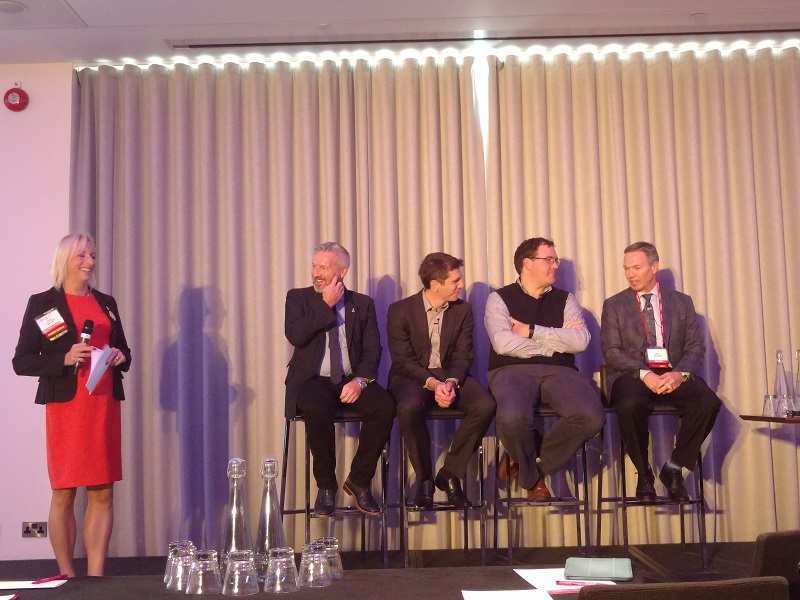
David Rowan
The New Rules of Business
Would you settle for jumping through the same hoops you go through for online commerce at your local grocery store? Probably not. From ridiculous CAPTCHAs to the hassle of remembering long-forgotten usernames, passwords and security questions, we collectively seem to have a level of patience for the layers of security embedded in online transactions that we’d never tolerate in person. For years we’ve struggled to balance the convenience of online shopping with the need for security gates that combat the exponential growth of black hat threats to our personal identity—it’s symptomatic of our internet growing pains, as we learn what people will and won’t put up with in the quest to connect everything through IoT and change the way we interact with the world around us.
Wired UK Editor-in-Chief David Rowan delved into compelling topics like this during his keynote, looking at the changing shape of technology through the lens of "The New Rules of Business." Smart houses, flying cars, 3D-printed objects, virtual reality—today, they’re all a reality (even the flying car!). And although the world we live in might not look like the one in "Back to the Future 2," it’s still a world chock-full of wonders that have enabled us to completely revolutionize numerous aspects of our lives in an almost scarily short amount of time. One thing that hasn’t changed? The ability of the strong, the quick-witted and the best prepared to survive any tumultuous period of change. Think WhatsApp. Think Uber. Think Yelp. We may be living in the exponential age, but it will still be those who succesfully ride the shifting waves of technology who will lead the channel through what comes next.
Do you Have 20/20 Vision?IT remains one of the most infamously difficult markets to lay any predictions upon. Whether it's trying to guess which gadget is the next big thing or attempting to predict which startup looks to be the next Apple, Google or Microsoft, laying everything on the line for a simple prediction is a nearly surefire way to flush a business down the tubes. This session offered a great reminder of why it’s so important to secure the fundamentals that support a business. Enacting solid business plans, laying out a crystal-clear succession blueprint, communicating a clear vision across the company and even advertising with a crisp, concise tagline—these key business fundamentals are so relied upon for a simple reason: they work.
 After "20/20 Vision," I’m happy to say I had the opportunity to attend the community recognition session that was taking place. It was a great chance to not only honor some truly inspiring people, but to also see some of the amazing work TeenTech has been up to. They’ve made some amazing accomplishments this year, and are in every sense an astounding organization worth supporting. Check 'em out!
After "20/20 Vision," I’m happy to say I had the opportunity to attend the community recognition session that was taking place. It was a great chance to not only honor some truly inspiring people, but to also see some of the amazing work TeenTech has been up to. They’ve made some amazing accomplishments this year, and are in every sense an astounding organization worth supporting. Check 'em out!
What End Users Really Think About Managed Services
Here’s a fact that shouldn’t surprise you—customers honestly won’t care if you call yourself a managed service provider or not. Certainly adopting the name can help you in other aspects of business planning, but when it comes right down to it, the only things your customers care about are whether or not they can rely on you, whether or not you do a good job, and whether or not they can find value in the prices they’re paying for the services you provide. This panel, presented by David Bellini (ConnectWise International), Bruce Penson (Pro Drive IT Limited), Craig Sharp (Abussi LTD) and Ian Vickers (Managed Enterprise Technologies Limited), offered an at-times brutally honest look into the changing field of managed services. The panelists offered some excellent insights, and they’re enthusiasm for the session was obvious and infections.

MC Tracy Pound with the MSP panel
Closing Keynote with Gina London: Communicating to Win!I always appreciate the opportunity to dive into some topics outside of my normal wheelhouse, and at EMEA I got the chance to close out my time there working on a skill set I often neglect: my negotiating abilities.
Gina London's approach revolved around the idea that negotiations aren’t just an occasional thing we have to do—they’re an important aspect of our everyday lives. From trying to get the kids to go to bed at a reasonable hour, to deciding where to go for dinner, negotiation forms a fundamental part of the way we interact with one another. In fact, it’s such a fundamental part of our lives, we often don’t realize it’s taking place. But the fact of the matter is that we are constantly hunting for the best deal, and once we realize the truth of that, we can take steps to improve the way we negotiate every aspect of our lives, from mundane discussions to immense business decisions.
EMEA was ultimately a wonderful opportunity to open up and connect with fascinating people and discover some invigorating insights. The conference itself is the end result of an exceptionally driven and talented community, and is unique in that it offers attendees an avenue to connect with peers well outside their normal professional circles. While there, I met with a number of fascinating folks who offered insightful opinions and observations that I otherwise would have never had the chance to experience. All in all, it was an incredible time, and I'm happy to say i'm already planing my trip back next year.



0